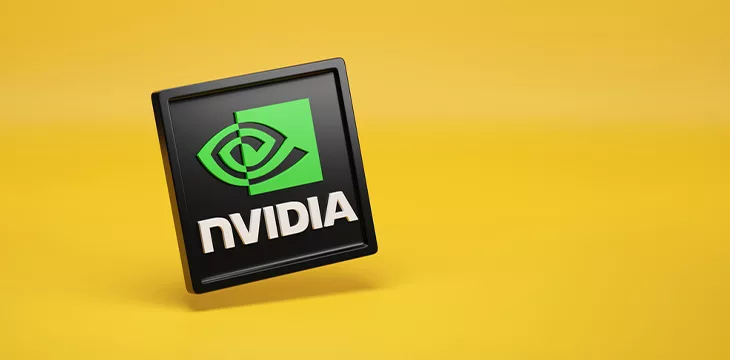|
Getting your Trinity Audio player ready...
|
U.S.-based chip manufacturer Nvidia (NASDAQ: NVDA) has inked a deal to introduce artificial intelligence (AI) technology in select data centers across the Middle East despite the looming trade embargo against the region.
According to a report from the South China Morning Post (SCMP), Nvidia signed a trade deal with Qatari-based telecommunication firm Ooredoo, an arrangement that will expand the footprint of the semiconductor manufacturer in the Middle East.
Both parties signed the deal at the TM Forum in Denmark, drawing attendees from key players in telecommunications, AI, and other emerging technologies. Nvidia’s AI infrastructure will be deployed in Ooredoo’s data centers across the Middle East and North Africa.
The new deal will allow Ooredoo to offer clients Nvidia’s AI and graphics processing technology in Qatar, Oman and Kuwait. Outside the Middle East, clients in Tunisia, Algeria and the Maldives will be provided with similar services, giving the Qatari-based firm a pioneering status with Nvidia products.
“Our b2b clients, thanks to this agreement, will have access to services that probably their competitors [won’t] for another 18 to 24 months,” said Aziz Aluthman Fakhroo, Ooredoo CEO.
The report failed to specifically mention Nvidia’s services that will be provided in the data centers, but pundits speculate that the tools will revolve around generative AI. Fakhroo hinted that the services will depend on “availability and demand,” but access to Nvidia’s latest and high-end chips is highly unlikely.
Apart from the tools, the report did not disclose the valuation of the deal, but unnamed insiders with knowledge of the arrangement said Nvidia would invest a sizable sum to improve the megawatts of Ooredoo’s data centers. Fakhroo disclosed to reporters that there are plans to triple the megawatts of the data centers before 2030 by leveraging partnerships and revenues.
Armed with fresh funds, Ooredoo could be undergoing a corporate restructuring with its undersea cables and fiber business expected to operate under a different entity. Its data centers are already operating under a separate entity for tax and regulatory benefits as it braces for competition from other regional players.
Nvidia is in limbo
U.S. authorities have announced trade restrictions on advanced semiconductors to China and some Middle Eastern countries, citing national security concerns. Nvidia’s revenues are projected to take a hit following the embargo on China, its largest international trade partner by a country mile.
To maintain its upbeat financials, the company is venturing into new markets, but U.S. authorities are monitoring to prevent China from accessing the latest AI chips through backdoor channels. Qatar and several Middle Eastern countries are facing restrictions over the potential abuse of AI systems by totalitarian governments against their citizens.
In order for artificial intelligence (AI) to work right within the law and thrive in the face of growing challenges, it needs to integrate an enterprise blockchain system that ensures data input quality and ownership—allowing it to keep data safe while also guaranteeing the immutability of data. Check out CoinGeek’s coverage on this emerging tech to learn more why Enterprise blockchain will be the backbone of AI.
Watch: UAE will lead the Middle East in blockchain adoption—Dr. Zayed Al Hemairy
Recommended for you
British lawmakers of the parliamentary national security committee have called for a temporary ban on political parties receiving donations in
Circle (NASDAQ: CRCL) soared in 2025 thanks to U.S. ‘regulatory clarity,’ but can this momentum survive a ban on crypto

 02-26-2026
02-26-2026 




